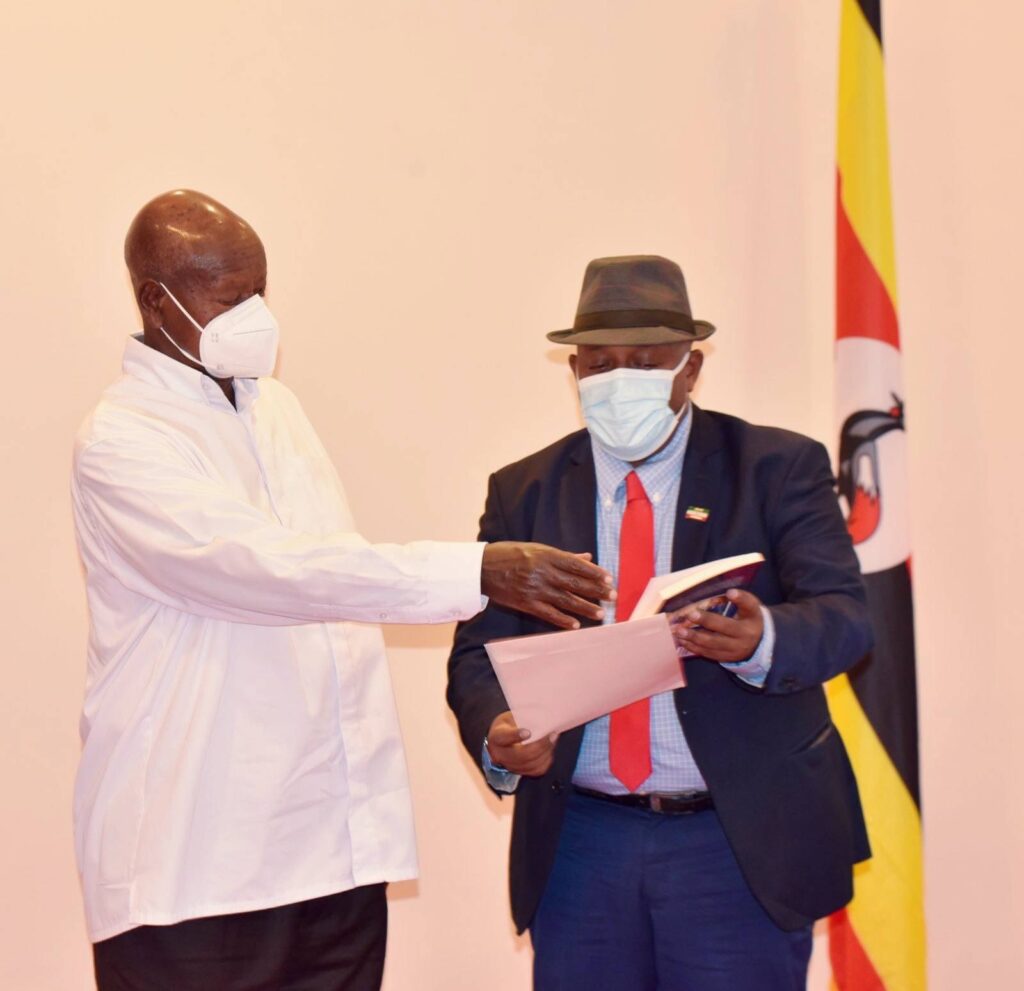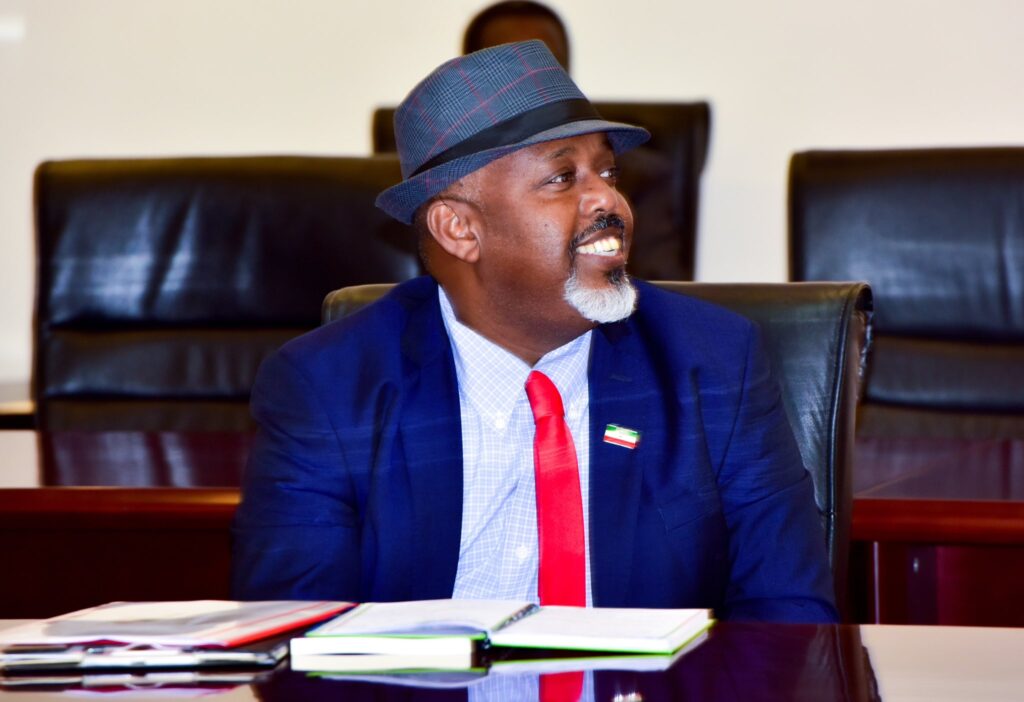BY KUNGU AL-MAHADI ADAM
WHILE meeting a special envoy from Somaliland, Dr. Jama Musse Jama, at State House Entebbe on Friday, President Yoweri Museveni said it is wrong for Somaliland to secede from Somalia, thereby offering to mediate in efforts to unify the two nations.

As a Pan-Africanist and a person who has been at the forefront of agitating for a united Africa for all the good reasons including, but not limited, to a wider market for Africa’s goods and services, President Museveni is absolutely right to insist that the two countries should not remain apart.
However, considering history and the contemporary situation of, and in the two nations, their unification is the most regrettable mistake the two countries can ever do since nations are built based on common uniting factors like descent, history and culture.
Although Somaliland and Somalia are neighbouring countries in the Horn of Africa, the two nations are totally different in terms of history, geographical location, and political situation.
Somaliland has never been part of a country called Somalia. Somaliland is a former British protectorate which got her independence on the 26th of June 1960. It shares borders with Ethiopia to the south and west, Djibouti to the west, Somalia to the east, and the Red Sea to the north. These borders are the most vivid and clearly demarcated borders in the world based on international treaties between the colonial masters.
Somaliland is the 12th African nation to become independent from the colonial rule with an official Royal Proclamation of her Majesty Queen Elizabeth II. This means Somaliland became independent way before 42 African countries.
Soon after the Somaliland’s independence from the British rule, 34 countries recognized it as an independent state, including members of the United Nations (UN) Security Council, but after only 5 days, the people of Somaliland voluntarily decided to unite with their neighbour, Somalia which had just got independence from Italy, to create the Somali Republic.
The dream was to have a greater Somali Republic in the Horn, waiting for other Somali inhabited territories including Djibouti, North Eastern Province of Kenya, and Somali region of Ethiopia to join the Union. This is the reason Somalia’s national flag still has a white star in the middle with five edges, each representing the 5 territories that Somali people permanently inhabit.
However, the Union, which was not ratified by any Act by the way, hit a dead end 31 years later as it was characterised by intrigue, turbulence, and dissatisfaction.
After 31 years of difficulties, injustice, inequalities, and prejudice, the marriage of the two neighbouring countries ended horribly with 11 years of War against Somalia’s military regime which claimed lives of a quarter a million of Somaliland people where civilians were shelled and cities bombed and brought to the ground by the military.
In 1991, Somalilanders defeated and destroyed the military deployed in their land by the military government. After which, Somaliland declared withdrawal from the Union they were part of, for more than 3 decades.
The country has been independent since 1991, and it is one of the most successful nations on many fronts, including democracy. The country has its own flag, currency, passport, government system, public institutions, and national army, which fully controls its territory.
It it considered the most democratic and politically stable nation in East and Central, according to Freedom House.
Somaliland has had a series of democratic elections since 1991, which international observers term as free, fair, and credible. 5 different presidents have been elected since then, and at some point, an incumbent lost an election, a rare trait in Africa’s politics.
Another historic electoral incident happened in 2003, when a candidate won the presidential election with a margin of only 80 votes against his contender, which is actually the least margin in the history of global democracy.

In the history of Somaliland, there was only one major incident of terrorism, and not a single occurrence of piracy has ever been recorded in the territorial waters of the Republic of Somaliland.
On the other hand, terrorism-infested Somalia, which is claims Somaliland is its territory (not basing on historical facts), has been maried in civil war, political instability, electoral violence and worse economic situations for decades.
So, calling for unification of the two countries is likened to mixing rotten tomatoes with the fresh ones. If Uganda was Somalia’s neighbour, would President Museveni call for the unity of the two countries given Somalia’s contemporary state?
The Republic of Somaliland is a sovereign, peaceful, democratic country in the Horn of Africa, unlike the war tone Somalia.
The unification of the two countries also violates Somaliland’s sovereignty and right to being independent since it got her independence from Britain in 1960 and was recognized by 34 countries, including permanent members of the security council.
It also received congratulatory notes from Her Majesty Queen Elizabeth II, Christian Herter, the US secretary of state at that time, and many other international leaders.
All Somaliland needs is support from respected African leaders like President Yoweri Museveni to attain international recognition as an independent state, not calls to unite with a failed nation. In fact, there’s nothing to mediate between the two countries.
I wish to bring the attention of President Museveni to the AU fact-finding mission that visited Somaliland on April 30, 2005, and stayed in the country for four days.
They made a thorough assessment of the Somaliland situation and remarked in their report that Somaliland’s search for recognition is historically unique and self-justified, as such they recommended the AU to find a special method of dealing with this outstanding case.
As per the AU fact-finding report, there was evidence, conviction, and emotion among Somalilanders that their country has all the attributes of an independent sovereign State, which they say the international community should objectively consider.
Not only did Somaliland satisfy the Montevideo criteria of statehood, but it also achieved what most of the African and Arab countries failed to achieve.
Somaliland and Somalia not the first countries in Africa to unite and dissolve the marriage Senegal and Gambia made the same Union in 1982 to build what was then called Senegambia and separated after several years, where every country took back his original name. Today, both countries are internationally recognised.
Egypt and Syria did the same in 1958 and established what was named the United Arab Republic until Syria withdrew from the Union.
The Republic of Somaliland is not drawing new borders. It complies that the 1963 Cairo agreement of the African Union (AU) member states that African borders should be based on the colonial borders.
Somaliland needs international recognition recognition do as to be part of the International platforms where they can contribute to the peace-loving and democratic world, and have access to international financial institutions like IMF and the World bank as well.
The writer is a Ugandan senior journalist with a passion for current African affairs, particularly Horn of Africa.
Do you have an opinion on any topic issue you want us to publish for the whole world to read, please Whatsapp our editor on +256 772523039


